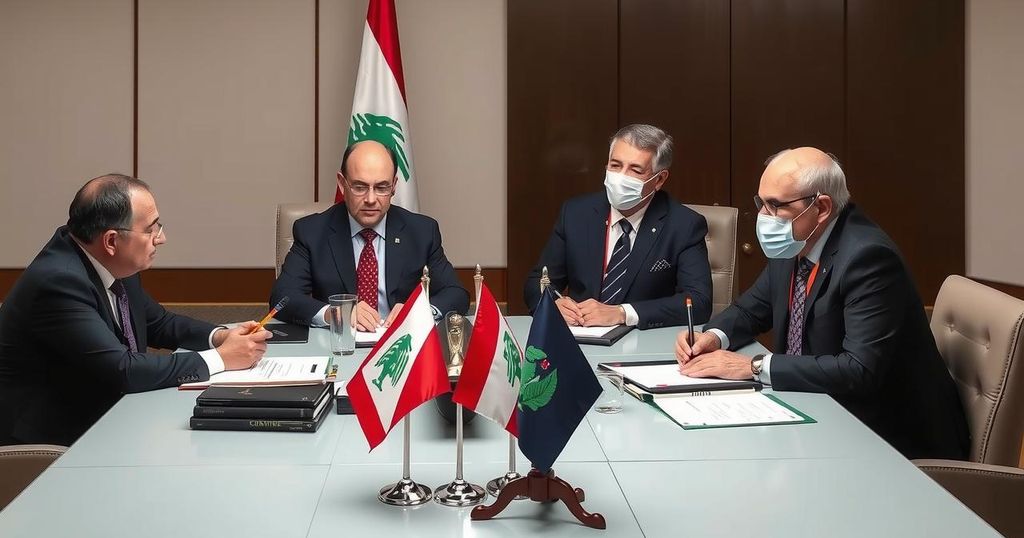Lebanese Leaders Pursue Presidential Election Amid Political Divisions
Lebanese leaders are engaged in discussions to elect a new president amid ongoing political and economic crises, with Army Chief Joseph Aoun emerging as a potential candidate. Despite external pressures and a ceasefire with Israel, divisions remain among political factions, complicating prospects for consensus on a new leader. The outcome of this election is pivotal for Lebanon’s future.
On Wednesday, key Lebanese political figures convened to discuss the selection of a new president, a critical matter for a nation that has lacked a leader for over two years amid ongoing economic and political turmoil. As the parliamentary session approaches, General Joseph Aoun emerges as a prominent candidate, particularly given his potential to enhance military deployment in southern Lebanon following a ceasefire agreement with Israel and Hezbollah. Nevertheless, divisions between Hezbollah and opposition factions persist, casting uncertainty on the likelihood of reaching a consensus to elect a new head of state.
In a region still bearing the scars of civil war, the Lebanese political landscape is characterized by contention between various factions, particularly between the Shiite group Hezbollah and its adversaries. Despite their weakened status as a result of recent conflict, Lebanese leaders face both internal and external pressures to resolve the presidential impasse. Recent diplomatic missions from France and the United States aim to foster political unity, with suggestions that a resolution is imperative for initiating essential reforms to address the ongoing financial crisis.
As political maneuvers unfold, Lebanon’s caretaker Prime Minister Najib Mikati expressed cautious optimism regarding the election of a president, labeling it as a pivotal moment for the nation. Meanwhile, prominent political figures and parties continue to deliberate upon potential candidates, including General Joseph Aoun, while various factions remain at odds over whom to support. The outcome of this electoral attempt is uncertain, reflecting the deep-rooted divisions within Lebanon’s fragmented political system and the involvement of external powers in the decision-making process.
In conclusion, the discussions surrounding Lebanon’s presidential election illustrate the complexities inherent in its political framework. The proposed candidacy of General Joseph Aoun encapsulates both hope for a refreshed leadership and the challenges of achieving widespread consensus amid ongoing sectarian divisions. The outcome remains to be seen, as political factions grapple with the profound implications of their choices in an increasingly unstable environment.
Lebanon is experiencing a profound political and economic crisis, which has left the country without a president since October 2022. The divisions primarily stem from tensions between Hezbollah and its opponents, particularly surrounding issues of governance and reform. The recent ceasefire between Israel and Hezbollah marked a potential turning point, as it could influence military and political stability in the region. Furthermore, external actors like France, the United States, and Saudi Arabia are engaging with Lebanese political leaders to encourage the election of a president who can facilitate urgent reforms to address the economic downturn that has plagued Lebanon since 2019.
The ongoing discussions concerning Lebanon’s presidential election highlight the intricate dynamics of its political landscape, which remains heavily influenced by sectarian divisions and external interventions. The candidacy of General Joseph Aoun represents a potential shift toward effective governance but is not without significant challenges. Ultimately, the election will serve as a critical juncture for Lebanon as it navigates the path towards recovery and stability amid longstanding crises.
Original Source: www.barrons.com




Post Comment